
Lech Valley: Austria's Hidden Alpine Gem
Nestled in the heart of the Austrian Alps, Lech Valley is a haven for nature lovers and adventure seekers alike. Surrounded by majestic mountains, this picturesque valley offers breathtaking views and an array of outdoor activities throughout the year. Whether you're hiking in the summer or skiing in the winter, Lech Valley promises an unforgettable experience. The charming villages scattered across the valley, like Lech and Warth, offer a glimpse into traditional Austrian life. Here, you can find cozy accommodations, delicious local cuisine, and warm hospitality. The region is also rich in culture, with many festivals and events celebrating its heritage and traditions. For those looking to explore beyond the trails and slopes, the Lech River provides opportunities for kayaking and fishing. The valley's lush meadows and forests are perfect for a leisurely stroll or a challenging mountain bike ride. Don't miss the chance to visit the stunning Formarinsee and Spullersee lakes, which are perfect for a peaceful picnic or a refreshing swim.
Local tips in Lech Valley
- Visit in late spring or early autumn for fewer crowds and beautiful scenery.
- Make sure to try the local cheese and traditional Austrian dishes at village inns.
- Pack layers, as the weather can change rapidly in the mountains.
- Consider renting an e-bike to explore the valley more easily.
- Check out local festivals for an authentic cultural experience.
Lech Valley: Austria's Hidden Alpine Gem
Nestled in the heart of the Austrian Alps, Lech Valley is a haven for nature lovers and adventure seekers alike. Surrounded by majestic mountains, this picturesque valley offers breathtaking views and an array of outdoor activities throughout the year. Whether you're hiking in the summer or skiing in the winter, Lech Valley promises an unforgettable experience. The charming villages scattered across the valley, like Lech and Warth, offer a glimpse into traditional Austrian life. Here, you can find cozy accommodations, delicious local cuisine, and warm hospitality. The region is also rich in culture, with many festivals and events celebrating its heritage and traditions. For those looking to explore beyond the trails and slopes, the Lech River provides opportunities for kayaking and fishing. The valley's lush meadows and forests are perfect for a leisurely stroll or a challenging mountain bike ride. Don't miss the chance to visit the stunning Formarinsee and Spullersee lakes, which are perfect for a peaceful picnic or a refreshing swim.
When is the best time to go to Lech Valley?
Iconic landmarks you can’t miss
Sennhütte - SENNsationell
Experience the essence of Austrian cuisine amidst the breathtaking landscapes of St. Anton am Arlberg at Sennhütte.
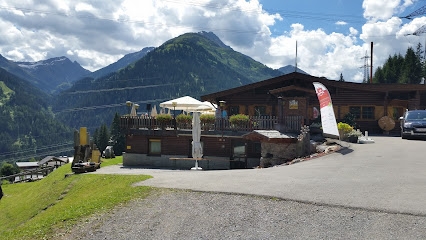
Rud-Alpe Gastronomie
Discover the culinary delights of Rud-Alpe Gastronomie in the heart of the Austrian Alps, where exquisite flavors meet breathtaking mountain views.
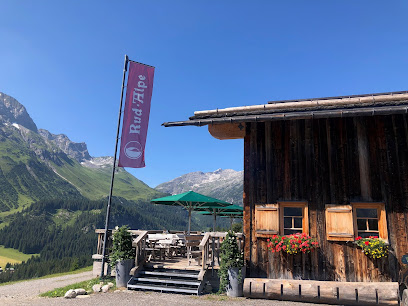
Balmalp Lech am Arlberg
Discover the culinary delights of Balmalp Lech am Arlberg, where exquisite cuisine meets stunning alpine views.
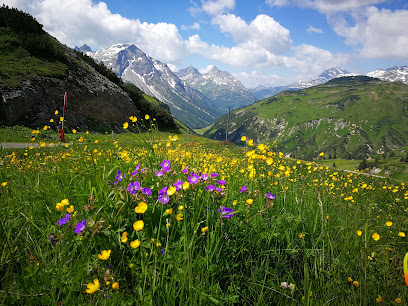
Panoramarestaurant Rüfikopf
Experience breathtaking views and delightful Austrian cuisine at Panoramarestaurant Rüfikopf, the perfect alpine dining destination.
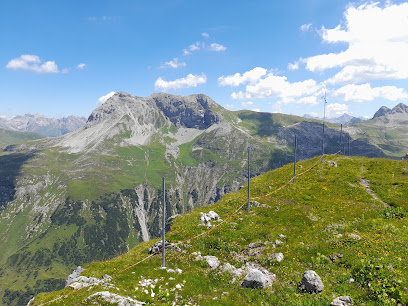
Rolls-Royce Museum
Explore the exquisite collection of classic cars at the Rolls-Royce Museum in Dornbirn, a haven for automotive enthusiasts and history buffs.
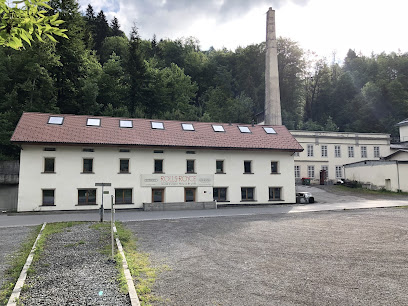
Fort Claudia
Experience the breathtaking views and rich history at Fort Claudia, a stunning fortress and hiking area in the heart of Reutte, Austria.
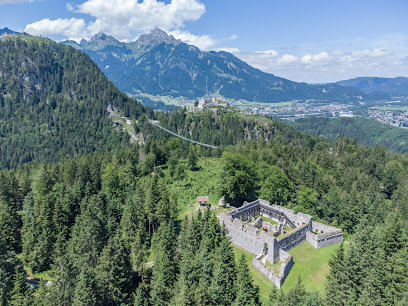
Naturpark Tiroler Lech
Explore the pristine beauty of Naturpark Tiroler Lech, a breathtaking nature preserve perfect for hiking and outdoor adventures in the Austrian Alps.
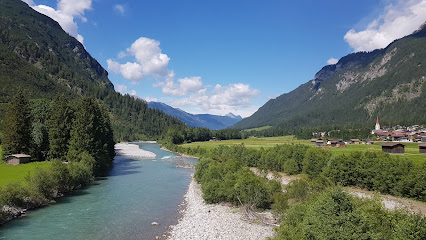
Flexenbahn, Talstation
Discover the stunning Flexenbahn, Talstation, your gateway to breathtaking alpine adventures in the heart of the Austrian Alps.
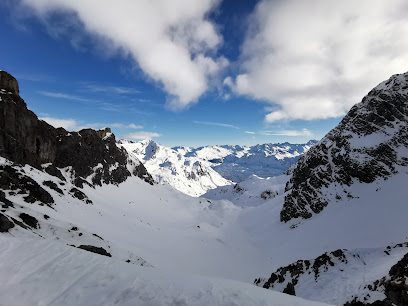
Trittkopfbahn, Talstation
Discover the stunning vistas and adventurous trails at Trittkopfbahn, Talstation, the gateway to the Austrian Alps' finest skiing and hiking experiences.
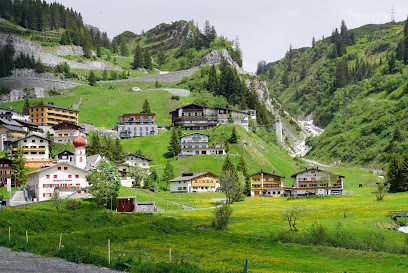
Jöchelspitze - Lechtaler Bergbahnen
Explore Jöchelspitze: A breathtaking alpine experience with stunning views, exciting activities, and authentic Tyrolean culture.
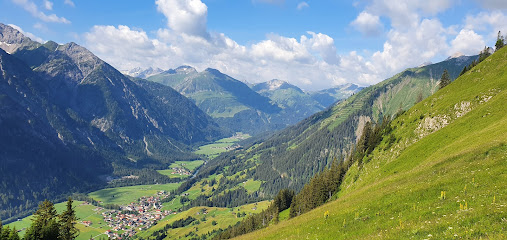
Gasthaus Älpele
Discover Gasthaus Älpele in Lech, where exquisite Austrian cuisine meets stunning alpine scenery, perfect for hikers and food lovers alike.
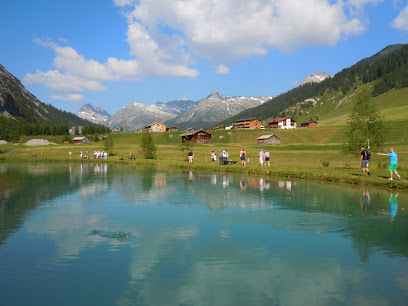
Hotel Tannbergerhof
Luxurious Alpine Retreat in Lech: Hotel Tannbergerhof Offers Exquisite Dining, Cozy Bar, and Access to Premier Skiing Adventures.
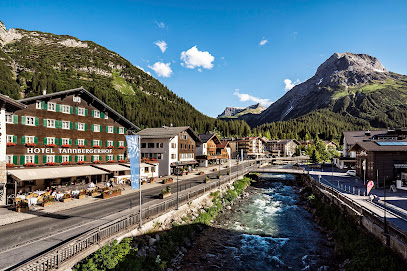
Hotel Arlberg
Discover the perfect blend of luxury, fine dining, and wellness at Hotel Arlberg in picturesque Lech, Austria.

Hotel Berghof
Discover the elegance of Hotel Berghof in Lech, where luxury meets the stunning beauty of the Austrian Alps.

Skyspace Lech
Explore the captivating Skyspace Lech, a sculptural masterpiece blending art and nature in the heart of the Austrian Alps.
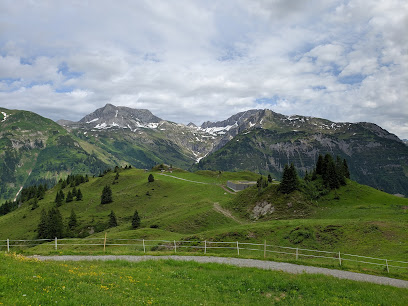
Unmissable attractions to see
Burgruine Ehrenberg
Discover the rich history and stunning views at Burgruine Ehrenberg, a captivating fortress in the heart of Tyrol, Austria.
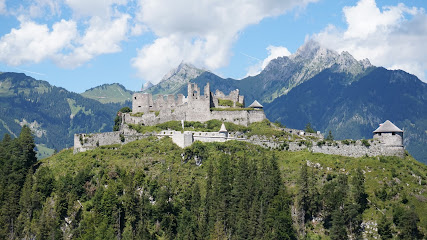
Fort Claudia
Explore Fort Claudia, a historical fortress in Reutte, Austria, set against a backdrop of breathtaking alpine scenery perfect for hiking and photography.
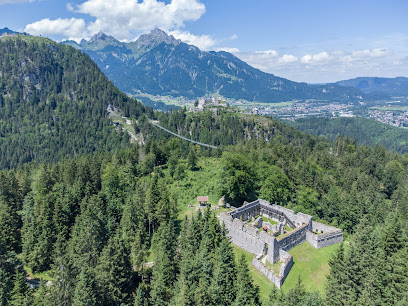
Sommerrodelbahn Wally-Blitz
Discover the excitement of Sommerrodelbahn Wally-Blitz, a thrilling alpine toboggan adventure in Elbigenalp surrounded by stunning mountain landscapes.
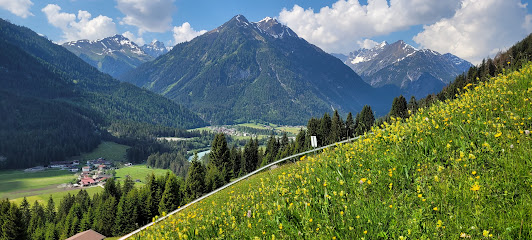
Naturpark Tiroler Lech
Explore the stunning Naturpark Tiroler Lech, a breathtaking nature preserve and hiking paradise in the heart of the Austrian Alps, perfect for all outdoor enthusiasts.
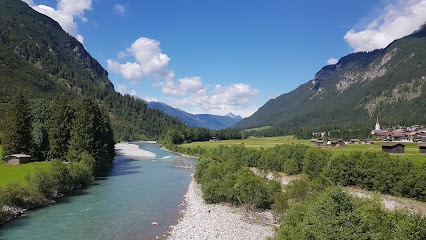
Flexenbahn, Talstation
Discover the breathtaking views and exhilarating experiences at Flexenbahn Talstation, the gateway to the stunning Arlberg region in Austria.
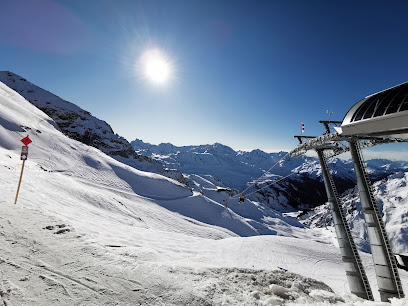
Trittkopfbahn, Talstation
Discover the breathtaking views and exhilarating adventures at Trittkopfbahn, Talstation, a must-visit mountain cable car in Lech, Austria.
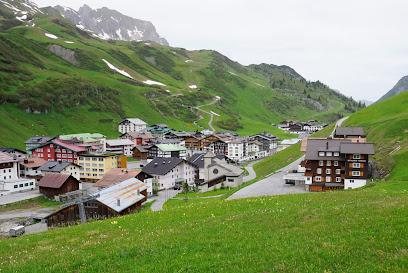
Jöchelspitze - Lechtaler Bergbahnen
Discover the breathtaking beauty of Jöchelspitze, a premier mountain cable car destination in Tirol, Austria, perfect for outdoor adventures and stunning views.
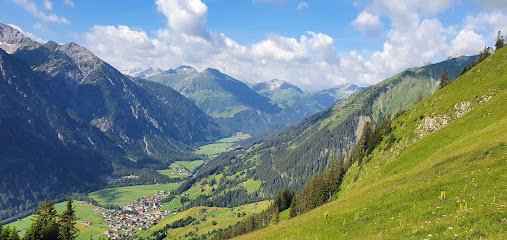
Ski Arlberg (St. Anton, St. Christoph, Stuben)
Experience the thrill of skiing in Ski Arlberg, Austria's largest ski resort, where breathtaking scenery meets world-class slopes and vibrant après-ski culture.
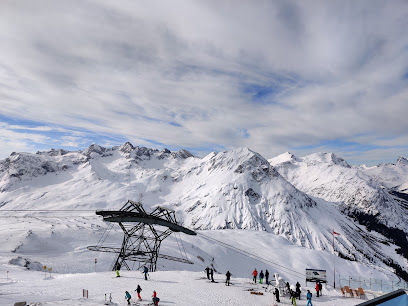
Skyspace Lech
Experience the breathtaking fusion of art and nature at Skyspace Lech, a stunning installation by James Turrell in the heart of the Austrian Alps.
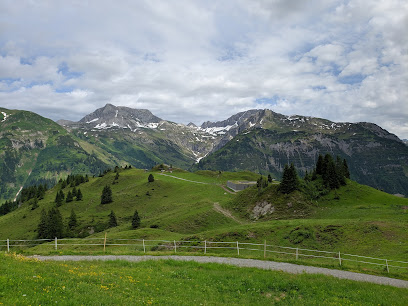
Steffisalpbahn Bergstation
Experience breathtaking views and thrilling adventures at Steffisalpbahn Bergstation, your gateway to the majestic Austrian Alps.
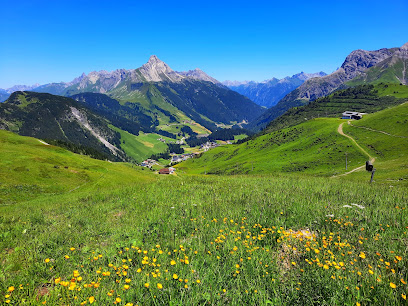
Burg Schrofenstein
Explore Burg Schrofenstein, a stunning medieval castle in Stanz bei Landeck, where history and breathtaking views await every traveler.
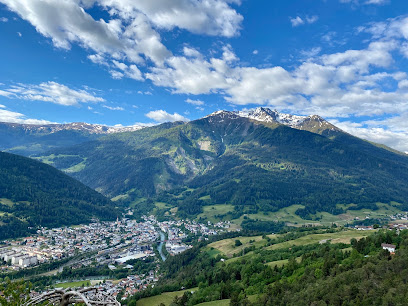
Steffisalp-Express valley station
Explore the beauty of the Austrian Alps with breathtaking views and thrilling adventures at the Steffisalp-Express Valley Station.
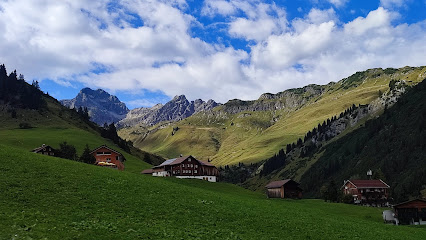
E5 Europafernwanderweg Kemptener Hütte nach Holzgau
Explore the stunning E5 Europafernwanderweg from Kemptener Hütte to Holzgau, a must-visit hiking trail in the Austrian Alps, perfect for all adventure lovers.
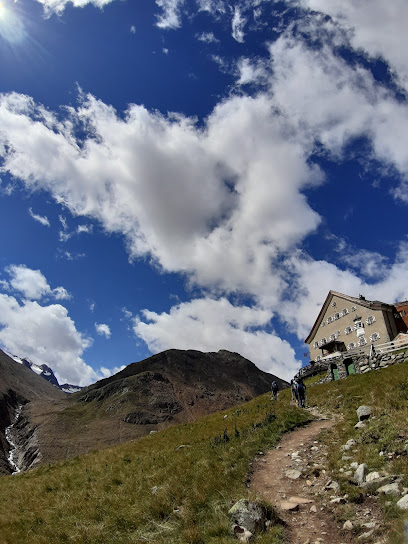
Essential places to dine
Rud-Alpe Gastronomie
Experience exquisite alpine dining at Rud-Alpe Gastronomie with stunning mountain views and a menu full of local flavors.
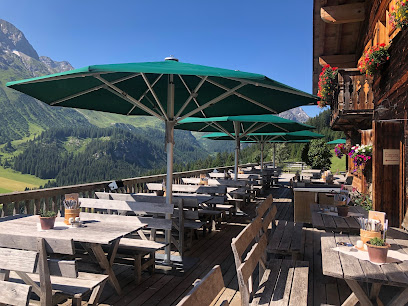
Balmalp Lech am Arlberg
Experience gourmet dining at Balmalp Lech am Arlberg - where local flavors meet stunning alpine views in an unforgettable culinary adventure.
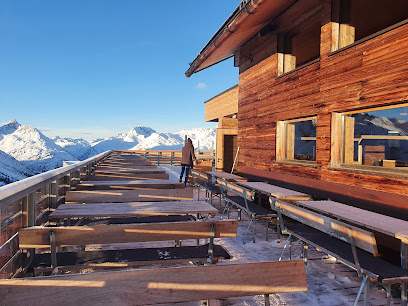
Skihütte Schneggarei
Discover alpine dining at Skihütte Schneggarei in Lech – where traditional Austrian flavors meet stunning mountain views.
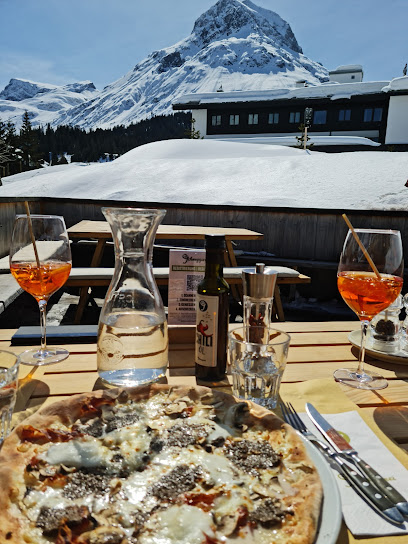
Hus Nr. 8
Discover Hus Nr. 8 in Lech – where cozy ambiance meets exquisite Austrian dining for an unforgettable culinary adventure.
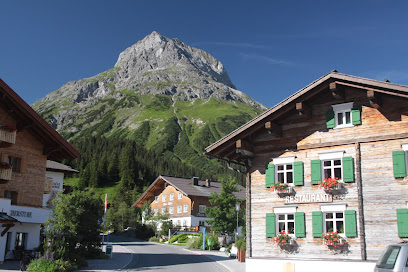
Gasthaus Älpele
Experience authentic Austrian cuisine with stunning mountain views at Gasthaus Älpele in Lech.
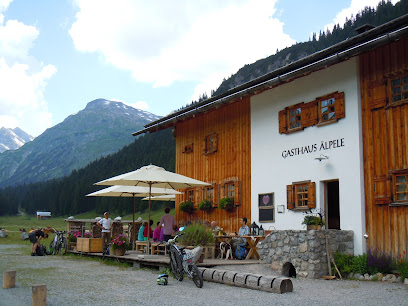
Restaurant Flexenhäusl - die außergewöhnliche Hütte
Discover the exquisite flavors of Austria at Restaurant Flexenhäusl, where cozy alpine charm meets culinary excellence.
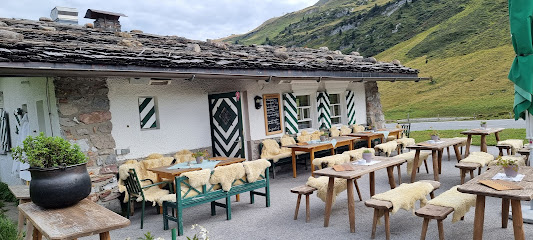
Krone-Stuben
Experience fine dining at Krone-Stuben in Lech - where traditional Austrian flavors meet modern culinary artistry.
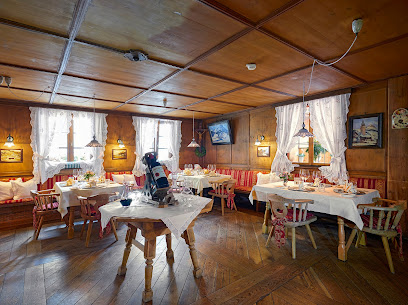
Lecher Stube
Discover Lecher Stube: An enchanting dining destination in Lech offering authentic Austrian cuisine amidst breathtaking alpine views.
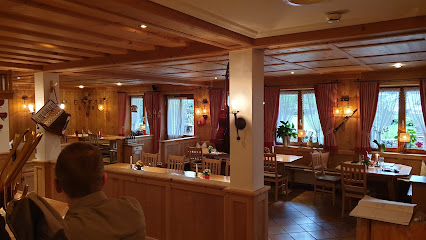
Fux Restaurant
Discover the exquisite flavors of Asia at Fux Restaurant in Lech – a perfect blend of culinary artistry and vibrant atmosphere amidst breathtaking alpine views.
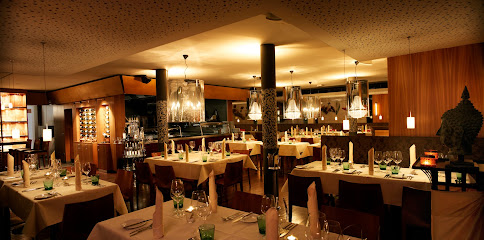
Restaurant Klösterle
Experience culinary artistry at Restaurant Klösterle in Lech - where traditional Austrian flavors meet modern elegance amidst breathtaking alpine views.
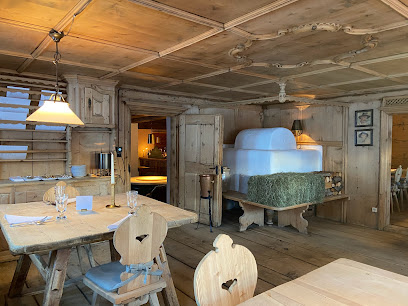
Achtele WeinRestaurant in Zug - Lech am Arlberg
Discover exquisite local flavors at Achtele WeinRestaurant in Lech am Arlberg – where culinary excellence meets stunning alpine views.
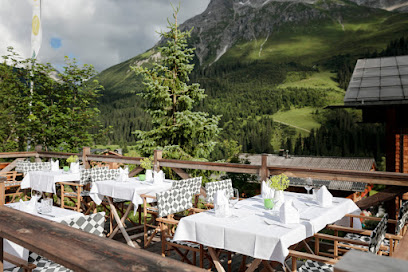
Das Theo
Discover exquisite cuisine at Das Theo in Lech – where traditional flavors meet modern flair amidst stunning alpine beauty.
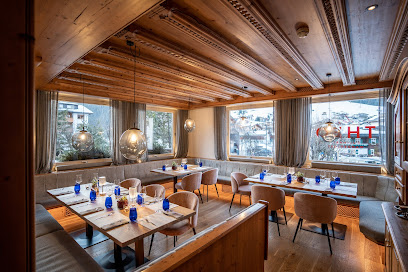
Unicorn Restaurant
Discover Unicorn Restaurant: where traditional Austrian flavors meet innovative cuisine amidst stunning alpine scenery.
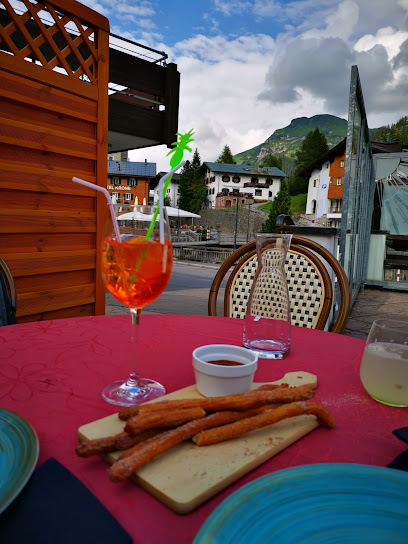
Griggeler Stuba
Experience authentic Austrian cuisine at Griggeler Stuba in Oberlech, where every dish tells a story amidst stunning alpine views.
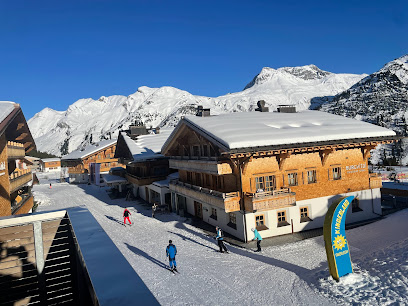
Restaurant Jägerstube & Walserstube in Lech am Arlberg
Discover authentic Austrian cuisine in the heart of Lech am Arlberg at Restaurant Jägerstube & Walserstube.
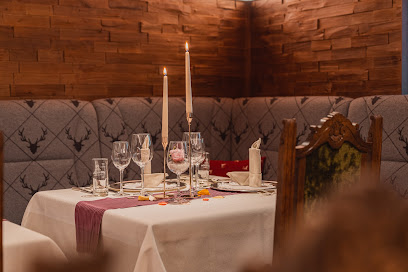
Markets, malls and hidden boutiques
SPAR
Explore the SPAR Supermarket in Lech for local groceries, fresh produce, and a taste of Tyrolean culture, perfect for your alpine adventure.
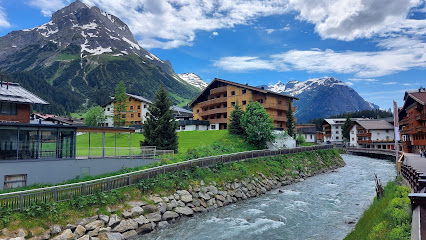
Trittkopfbahn, Talstation
Discover the breathtaking views and thrilling adventures at Trittkopfbahn, Lech's iconic mountain cable car, perfect for outdoor enthusiasts.
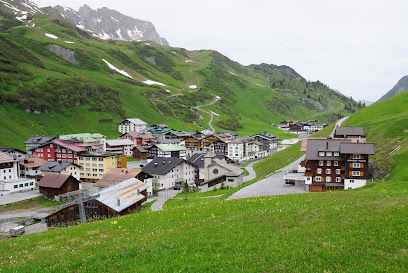
Post Lech Arlberg
Experience unparalleled luxury and alpine beauty at Post Lech Arlberg, your perfect retreat in the heart of the Austrian mountains.

Hotel Arlberg
Experience the perfect blend of luxury, fine dining, and wellness at Hotel Arlberg in the heart of the Austrian Alps.

Pfefferkorn's Hotel
Discover the charm of Lech at Pfefferkorn's Hotel, where luxury meets alpine adventure in a stunning natural setting.
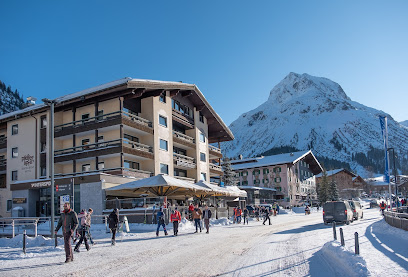
Strolz Sport & Modehaus Lech
Explore the Alps with confidence at Strolz Sport & Modehaus Lech, your one-stop shop for outdoor gear and clothing in the heart of the mountains.
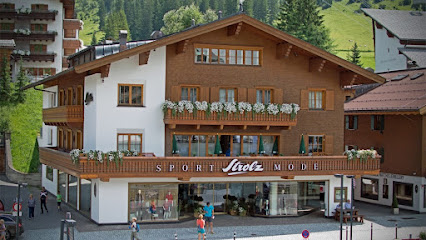
Hotel Haldenhof
Discover unparalleled luxury and breathtaking alpine views at Hotel Haldenhof in Lech, Austria – your perfect getaway for relaxation and adventure.

Hotel Arlberghaus
Discover unparalleled luxury and stunning alpine views at Hotel Arlberghaus in the beautiful Zurs region of Lech, Austria.
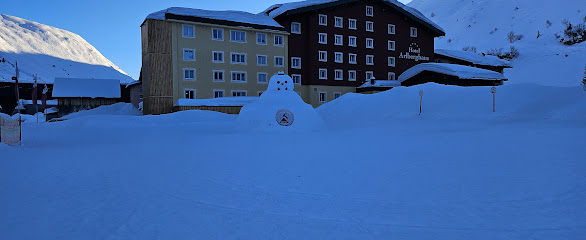
Lech Valley Lodge | Hotel Lodge | Arlberg
Experience the perfect blend of luxury and nature at Lech Valley Lodge, a serene wellness retreat in the stunning Arlberg region.
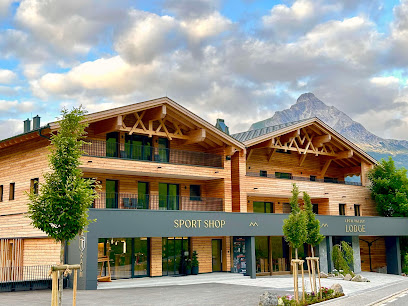
friendly Brändle Ski-Sport-Mode
Discover top-notch ski gear and apparel at Friendly Brändle Ski-Sport-Mode, your ultimate destination in Lech for winter sports enthusiasts.
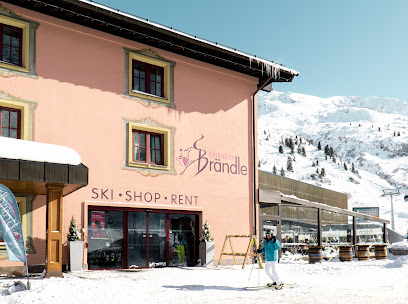
Lech Zürs Tourismus
Discover the enchanting alpine village of Lech Zürs, a year-round destination for skiing, hiking, and breathtaking natural beauty.
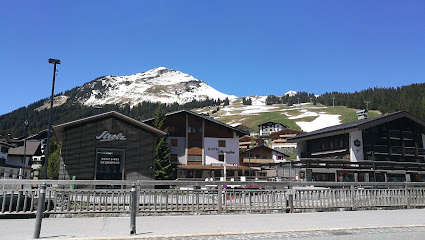
Geschenk Boutique Edelweiß St. Anton
Explore a charming gift shop in St. Anton, offering unique local souvenirs and handcrafted treasures to remember your Austrian adventure.
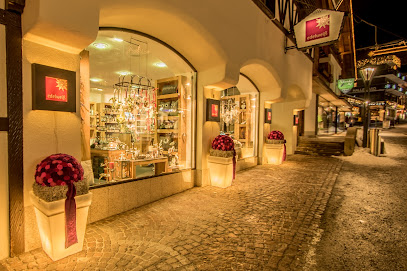
Lenai & Linai - Kleidung aus Lech
Explore unique Alpine fashion at Lenai & Linai in Lech, where tradition meets modern elegance in every carefully curated piece.
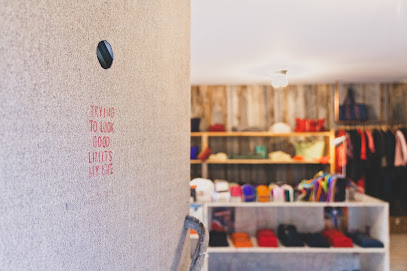
The North Face Lech
Explore the ultimate destination for high-performance outdoor gear at The North Face Lech, your gateway to alpine adventures in Austria.
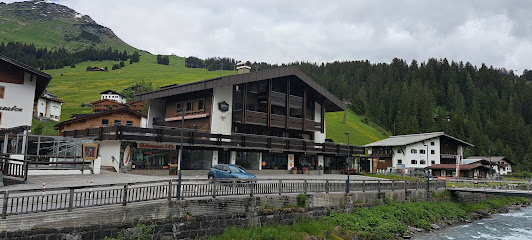
Ski-Club Arlberg Shop Lech
Discover the ultimate ski experience at the Ski-Club Arlberg Shop in Lech, your trusted source for premium ski gear and apparel.
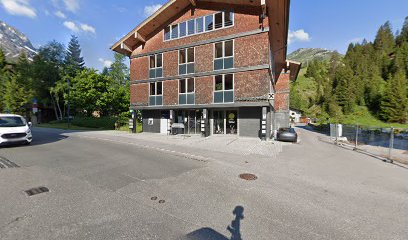
Essential bars & hidden hideouts
Rud-Alpe Gastronomie
Discover the exquisite culinary offerings at Rud-Alpe Gastronomie, set against the breathtaking backdrop of the Austrian Alps in Lech.
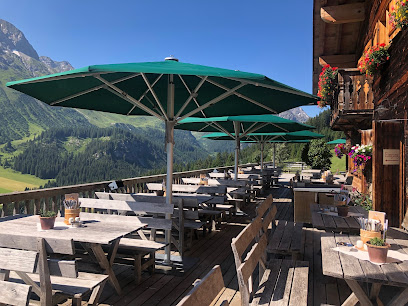
Krazy Kanguruh
Experience the vibrant apres-ski culture at Krazy Kanguruh in St. Anton am Arlberg, where delicious food meets a lively atmosphere.
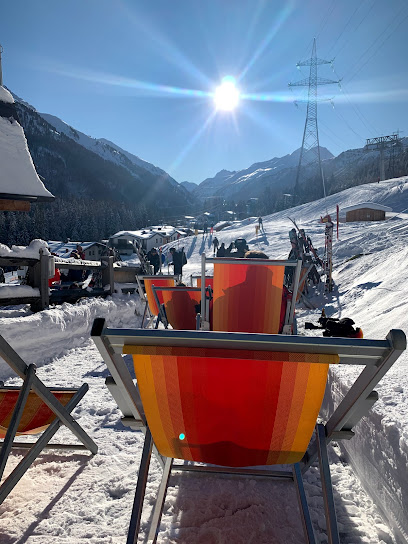
Skihütte Schneggarei
Discover the alpine charm of Skihütte Schneggarei, a perfect blend of delicious cuisine and stunning mountain views in the heart of Lech.
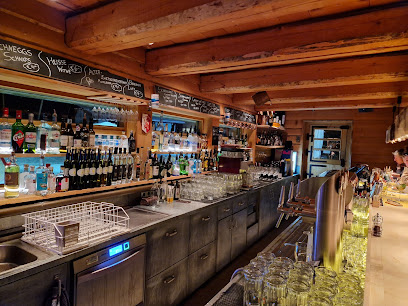
Murrmel Bar
Experience the vibrant après-ski culture at Murrmel Bar in St. Anton am Arlberg with great food, drinks, and live entertainment.
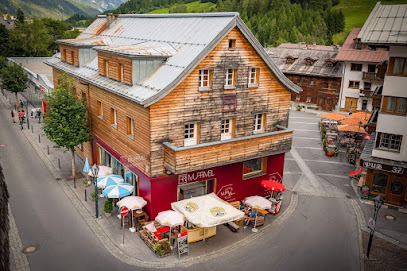
Gasthaus Älpele
Discover the flavors of Austria at Gasthaus Älpele, a perfect dining retreat for hikers and food lovers in the stunning Lech mountains.
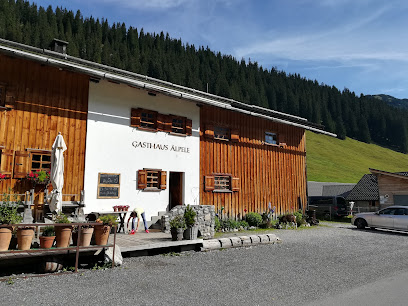
Krone-Stuben
Savor the essence of Alpine cuisine at Krone-Stuben, where tradition meets innovation in a stunning Lech setting.
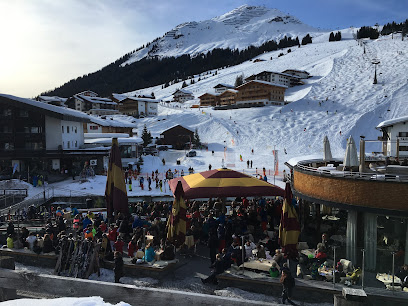
Hotel Berghof
Discover the perfect alpine retreat at Hotel Berghof in Lech, where luxury meets comfort amidst stunning mountain views.

Hinterwies - Ski In / Lodge / Dine
Discover the charm of Hinterwies Lodge in Lech: where skiing, dining, and relaxation blend seamlessly in a stunning Alpine setting.
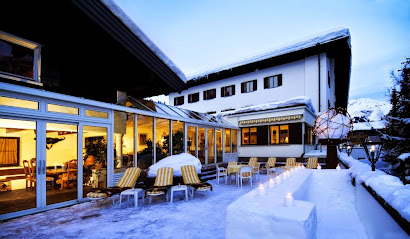
Keller Bar
Experience the cozy charm of Keller Bar in St. Anton am Arlberg, where great drinks and a warm atmosphere create unforgettable memories.
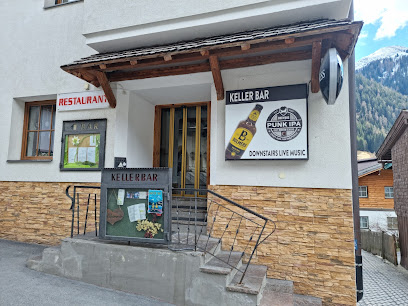
Lech Valley Lodge | Hotel Lodge | Arlberg
Experience the ultimate alpine escape at Lech Valley Lodge, a luxurious wellness hotel in the heart of the breathtaking Arlberg region.
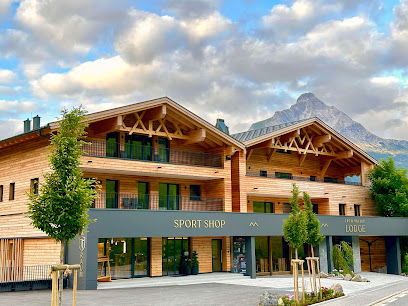
Bar Vernissage
Discover Bar Vernissage in Lech, the ultimate cocktail bar and dance club for a thrilling night out in the Austrian Alps.

K.Club BAR GmbH
Discover the exhilarating nightlife of Lech at K.Club BAR GmbH, where music and cocktails create unforgettable memories.
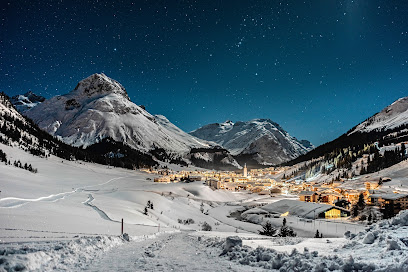
THE YURT at Hotel ARLBERG
Discover the charm of The Yurt at Hotel Arlberg, a unique bar in Lech offering a cozy atmosphere and exceptional drinks amidst stunning alpine scenery.
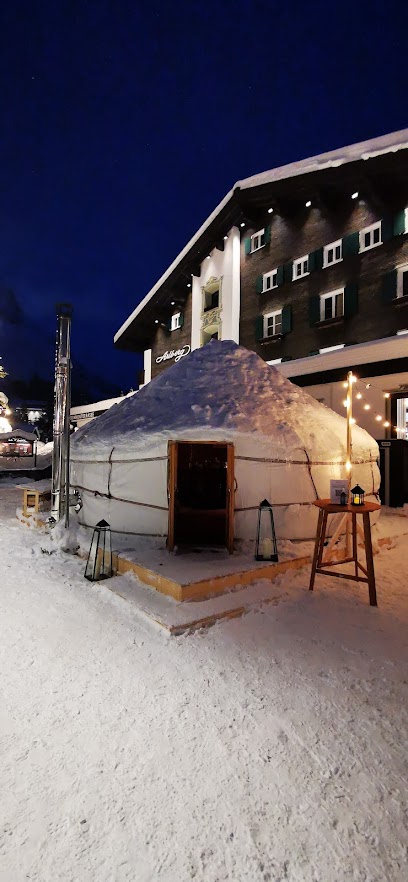
Griggeler Stuba
Experience exceptional Austrian cuisine at Griggeler Stuba in Oberlech, where exquisite flavors meet stunning alpine views.
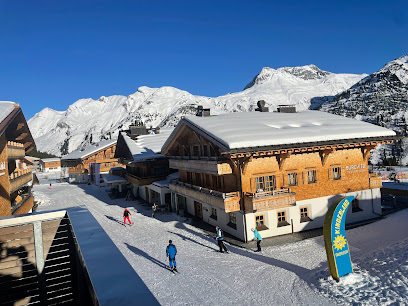
Local Phrases about Lech Valley
-
- HelloGriaß di
[Gree-ass dee] - GoodbyePfiat di
[Pfee-aht dee] - YesJa
[Yah] - NoNed
[Ned] - Please/You're welcomeBitte
[Bit-teh] - Thank youDanke
[Dahn-keh] - Excuse me/SorryEntschuldigung
[Ent-shool-dee-goong] - How are you?Wie geht's?
[Vee gayts] - Fine. And you?Gut. Und dir?
[Goot. Oond deer] - Do you speak English?Sprechen Sie Englisch?
[Shpre-khen zee Eng-leesh] - I don't understandI versteh ned
[Ee fer-shtay ned]
- HelloGriaß di
-
- I'd like to see the menu, pleaseI hätt gern die Speisekarte, bitte
[Ee hatt gehrn dee Sp-eye-zuh-kar-teh, bit-teh] - I don't eat meatI ess kane Fleisch
[Ee ess kah-ne Fly-sh] - Cheers!Prost!
[Prohst] - I would like to pay, pleaseI möcht bitte zahlen
[Ee mookht bit-teh tsah-len]
- I'd like to see the menu, pleaseI hätt gern die Speisekarte, bitte
-
- Help!Hilfe!
[Hil-feh] - Go away!Geh weg!
[Geh veg] - Call the Police!Ruf die Polizei!
[Roof dee Po-lee-tz-eye] - Call a doctor!Ruf einen Arzt!
[Roof i-nen Aartst] - I'm lostI bin verloren
[Ee been fer-loh-ren] - I'm illMir ist schlecht
[Meer ist shlecht]
- Help!Hilfe!
-
- I'd like to buy...I möcht ... kaufen
[Ee mookht ... cow-fen] - I'm just lookingI schau nur
[Ee shou noor] - How much is it?Wie viel kostet es?
[Vee feel koss-tet es] - That's too expensiveDas ist zu teuer
[Dahs ist tsoo toy-er] - Can you lower the price?Können Sie den Preis senken?
[Kooh-nen zee den prees sen-ken]
- I'd like to buy...I möcht ... kaufen
-
- What time is it?Wie spät ist es?
[Vee shpayt ist es] - It's one o'clockEs ist ein Uhr
[Es ist iyn oor] - Half past (10)Halb elf
[Halb elf] - MorningMorgen
[Mor-gen] - AfternoonNachmittag
[Nah-mit-tahg] - EveningAbend
[Ah-bent] - YesterdayGestern
[Ges-tern] - TodayHeute
[Hoy-teh] - TomorrowMorgen
[Mor-gen] - 1Eins
[Iyns] - 2Zwei
[Tzvey] - 3Drei
[Drey] - 4Vier
[Feer] - 5Fünf
[Foonf] - 6Sechs
[Zeks] - 7Sieben
[Zee-ben] - 8Acht
[Acht] - 9Neun
[Noy-n] - 10Zehn
[Tzayn]
- What time is it?Wie spät ist es?
-
- Where's a/the...?Wo ist ein/der...?
[Voh ist iyn/dehr] - What's the address?Was ist die Adresse?
[Vahs ist dee Ah-dreh-suh] - Can you show me (on the map)?Können Sie mir zeigen (auf der Karte)?
[Kooh-nen zee meer tsai-gen (ouf dehr kar-teh)] - When's the next (bus)?Wann kommt der nächste (Bus)?
[Vahn kommt dehr neh-khs-teh (Boos)] - A ticket (to ....)Eine Fahrkarte (nach ...)
[I-nuh Fahr-kar-teh (nahkh ...)]
- Where's a/the...?Wo ist ein/der...?
History of Lech Valley
-
The Lech Valley has been inhabited since prehistoric times, with evidence of early settlers dating back to the Stone Age. During the medieval period, the valley saw the establishment of small villages and hamlets. The area's strategic location made it a key route for traders and travelers passing through the Alps.
-
The Roman Empire extended its reach into the Lech Valley around the 1st century AD. Remnants of Roman roads and milestones can still be found, indicating the valley's importance in connecting the northern provinces of the empire. The Romans introduced advanced agricultural techniques and established military outposts to secure the region.
-
During the Middle Ages, the Lech Valley was governed by local nobility who built fortified castles and manors. These structures served as centers of power and protection against invasions. The valley's economy was primarily based on agriculture, with local lords overseeing the production and trade of goods.
-
The spread of Christianity in the Lech Valley led to the establishment of monasteries and churches, many of which still stand today. These religious institutions played a significant role in the cultural and educational development of the region. Monastic life introduced advancements in farming, education, and the arts.
-
The Lech Valley, like much of Austria, experienced periods of conflict and struggle for independence. The Habsburg dynasty eventually brought stability to the region in the late Middle Ages. Under Habsburg rule, the valley saw significant economic and infrastructural development, including the construction of roads and bridges.
-
The Lech Valley, though relatively remote, was not untouched by the ravages of World War I and II. The local population faced hardships as resources were diverted to the war efforts. Post-war reconstruction brought modernization to the valley, with improvements in transportation and public amenities.
-
In recent decades, the Lech Valley has become a popular destination for tourists seeking both natural beauty and cultural heritage. Efforts have been made to preserve the valley's historical sites, traditions, and landscapes. Local festivals, traditional crafts, and culinary specialties are celebrated, keeping the rich cultural tapestry of the valley alive.
Lech Valley Essentials
-
Lech Valley, located in the western part of Austria, is most conveniently accessed via Innsbruck Airport, approximately 120 kilometers away. Another option is Zurich Airport in Switzerland, around 200 kilometers from Lech Valley. From these airports, you can rent a car or take a train to reach the valley. The Austrian Federal Railways (ÖBB) provide regular service to Langen am Arlberg, the nearest train station, from where you can take a bus or taxi to your final destination.
-
Public transportation in Lech Valley is efficient and well-connected. Buses run frequently between towns and villages, making it easy to explore the region. Taxis are also available but can be more expensive. For a more flexible travel experience, renting a car is a good option. During the winter season, ski buses connect various ski areas, and many accommodations offer shuttle services to ski lifts. Cycling is another popular way to explore the valley during the summer months.
-
The official currency in Austria is the Euro (EUR). Credit and debit cards are widely accepted in hotels, restaurants, and shops. However, it is advisable to carry some cash, especially when visiting smaller establishments or rural areas. ATMs are readily available in most towns. It's a good idea to inform your bank about your travel plans to avoid any issues with card transactions.
-
Lech Valley is generally a very safe destination for tourists. There are no specific high-crime areas targeting tourists, but it is always wise to take standard precautions such as keeping an eye on your belongings, especially in crowded places. Avoid leaving valuables in your car and be cautious when hiking or skiing in remote areas. The local police are approachable and helpful should you need any assistance.
-
In case of emergency, dial 112 for immediate assistance. This number connects you to police, medical, and fire services. Lech Valley has several medical facilities, including pharmacies and clinics, and the nearest hospital is in Bludenz, about 40 minutes away by car. It is highly recommended to have travel insurance that covers medical emergencies. For minor health issues, local pharmacies can provide over-the-counter medications.
-
Fashion: Do dress in layers, especially in winter, as temperatures can vary greatly. Avoid overly casual attire in upscale restaurants. Religion: Do respect local customs, especially in churches. Always remain quiet and respectful when visiting religious sites. Public Transport: Do validate your ticket before boarding and offer your seat to elderly passengers. Don't eat or drink on public transport. Greetings: Do greet people with a friendly 'Grüß Gott' (God's greeting). Handshakes are common. Eating & Drinking: Do try local specialties like Käsekrainer and Apfelstrudel. Don't forget to tip your waiter; 5-10% is customary.
-
To experience Lech Valley like a local, visit the weekly farmers' markets where you can buy fresh produce and local crafts. Engage with locals in smaller cafes and inns, where you're likely to hear fascinating stories about the valley's history and culture. Don't miss the opportunity to hike some of the lesser-known trails that offer stunning views and a more serene experience. In winter, try to participate in traditional festivities such as the Krampuslauf, a unique local event.
Trending Landmarks in Lech Valley
-
Sennhütte - SENNsationell
-
Rud-Alpe Gastronomie
-
Balmalp Lech am Arlberg
-
Panoramarestaurant Rüfikopf
-
Rolls-Royce Museum
-
Fort Claudia
-
Naturpark Tiroler Lech
-
Flexenbahn, Talstation
-
Trittkopfbahn, Talstation
-
Jöchelspitze - Lechtaler Bergbahnen
-
Gasthaus Älpele
-
Hotel Tannbergerhof
-
Hotel Arlberg
-
Hotel Berghof
-
Skyspace Lech
Nearby Cities to Lech Valley
-
Things To Do in Dornbirn
-
Things To Do in Bregenz
-
Things To Do in Schellenberg
-
Things To Do in Mauren
-
Things To Do in Ruggell
-
Things To Do in Triesenberg
-
Things To Do in Eschen
-
Things To Do in Vaduz
-
Things To Do in Schaan
-
Things To Do in Gamprin
-
Things To Do in Balzers
-
Things To Do in Davos
-
Things To Do in Arosa
-
Things To Do in St. Moritz
-
Things To Do in Innsbruck













